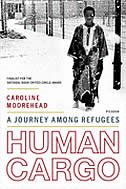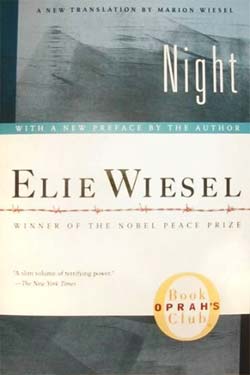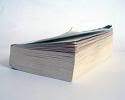 Fair Trade For All: How Trade Can Promote Development
Fair Trade For All: How Trade Can Promote Development By Joseph E. Stiglitz and Andrew Charlton
This book looks at economic and trade policy aimed at promoting development within the least developed countries in the context of the World Trade Organization. To be completely honest, most of the book was over my head. At best, I have a rudimentary understanding of economics.
Still, the premise of the book was interesting. It was primarily a critique of the existing assumptions and rules that govern trade agreement negotiations between WTO countries. The authors argue that most of the economic assumptions that underlie these negotiations simply don't hold true for developing countries. Large developed countries, like the US, consistently negotiate trade agreements with less developed countries that negatively impact the potential for development in those countries. The authors argue that we need re-evaluate the popular notion that trade liberalization is the best and only recipe for development.
The authors posit a new form of trade agreement between developed and developing countries, which they call the Market Access Proposal. Essentially, the proposal is as follows:
All WTO members could commit themselves to providing free market access in all
goods to developing countries poorer and smaller than themselves. (94)
The idea is that market access is distributed progressively based on criteria like GDP and population. As I understand it, this model would look like a big pyramid with the US at the top providing unrestricted access to its markets to all countries below it.
As I said, much of this book was beyond me, but I did take away a few things from it. I have a better understanding of the complexity of farm subsidies. Living in southwestern Ontario, this is an issue that is often in the news, but one that I've never really understood. I certainly wouldn't claim to understand it now, but I have a better appreciation for why it is such a contentious issue. When developed countries like Canada, the US or the EU subsidize agriculture it drives down prices in those markets that developing countries are most likely to have a competitive advantage in, which obviously is to the detriment of developing countries.
Herein lies the tension - should we do just what's best for Canada? For our farmers and our agricultural industry? Or do we need to broaden the scope of the application of principles of fairness and equality and think globally rather than just nationally? Fair Trade For All makes the point that political globalization has not kept up with economic globalization and that as a result we are still adhering to a system of international trade negotiation based upon political and economic power rather than upon principle and fairness.
Interesting topic, but not exactly accessible for those of us without a background in economics or international trade. The writing was extremely dry, and I think that if the authors wanted to appeal to a wider audience they should have used some real-life examples (ie. described the impacts of non-tariff barriers) to make the subject more relatable.

 Human Cargo: A Journey Among Refugees
Human Cargo: A Journey Among Refugees






























